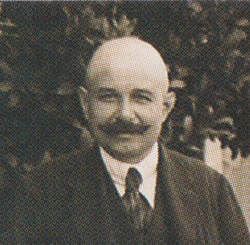Electoral system
Prior to the elections the United Party-led government changed the electoral system in order to ensure it retained its leading position. [2] This involved reintroducing open elections and restricting the electoral census. The reforms were passed by a decree by Prime Minister István Bethlen as Parliament had already been dissolved.
The country was divided into 219 constituencies, of which 215 were single member constituencies and four were multi-member constituencies. Of the 215 single member constituencies, only 20 used the secret ballot, with the remainder (which were rural constituencies) [2] using open elections. [3] All four multi-member constituencies used secret ballots. [3]
This page is based on this
Wikipedia article Text is available under the
CC BY-SA 4.0 license; additional terms may apply.
Images, videos and audio are available under their respective licenses.




